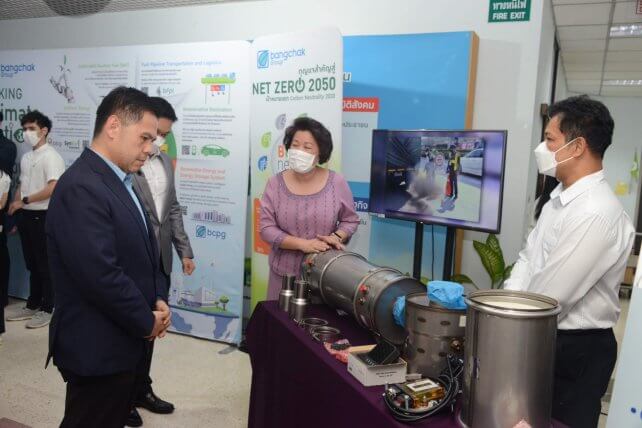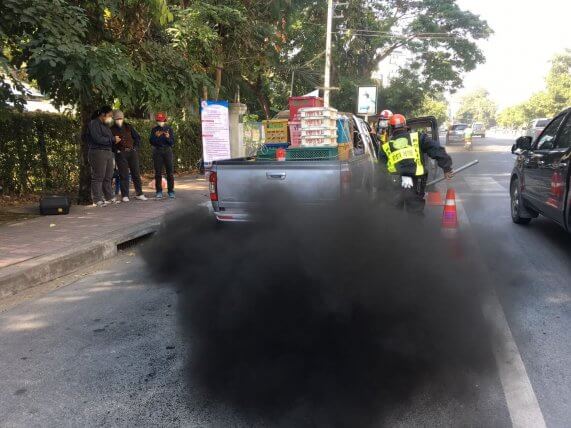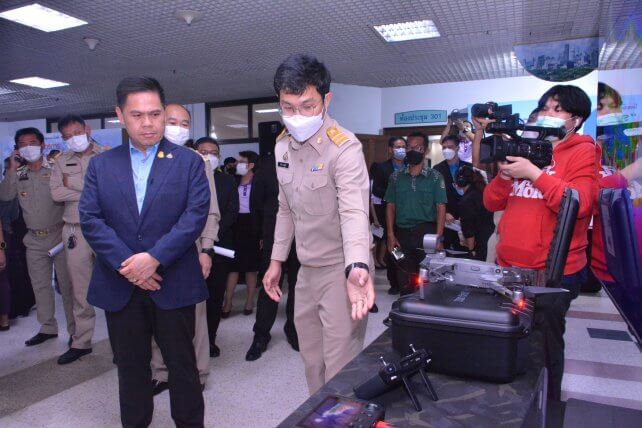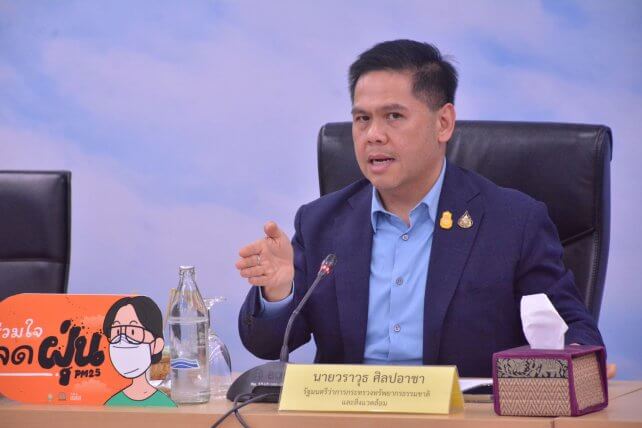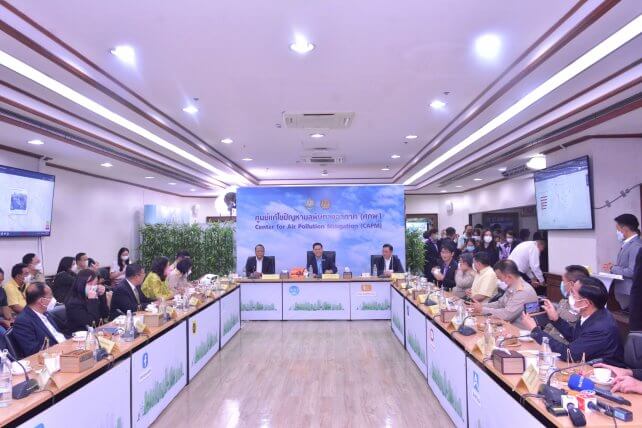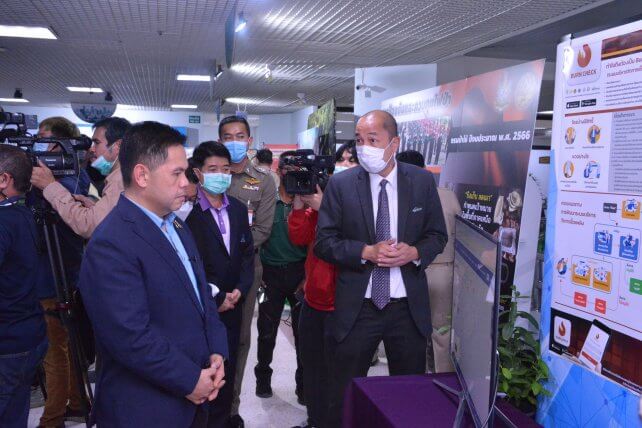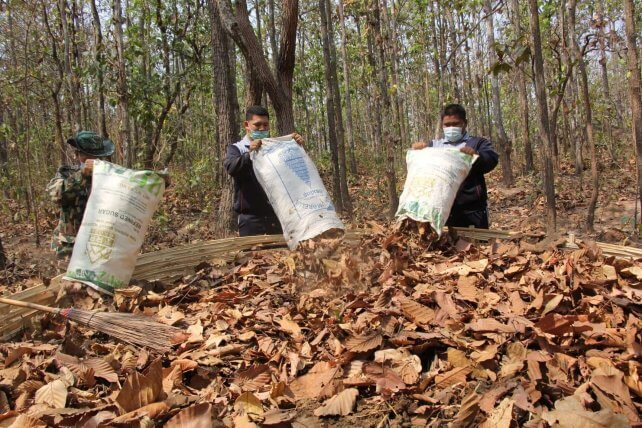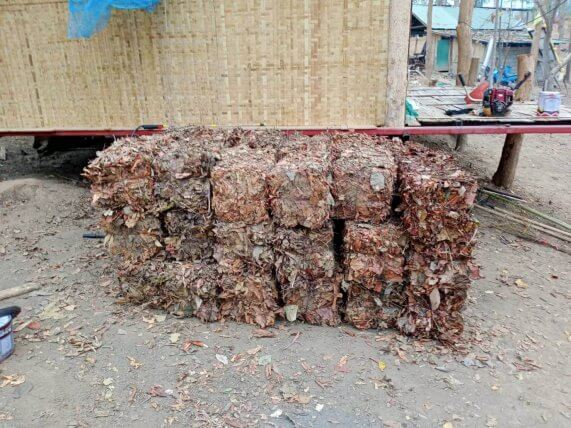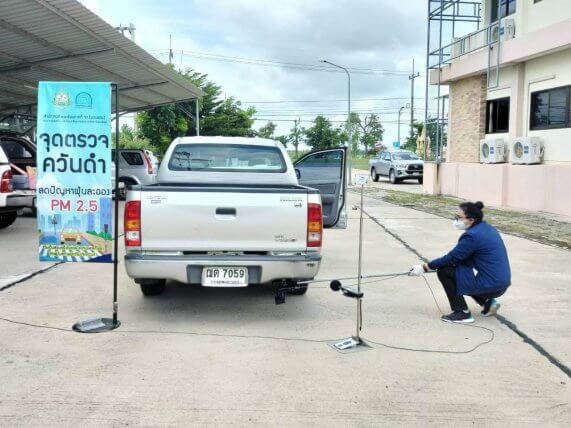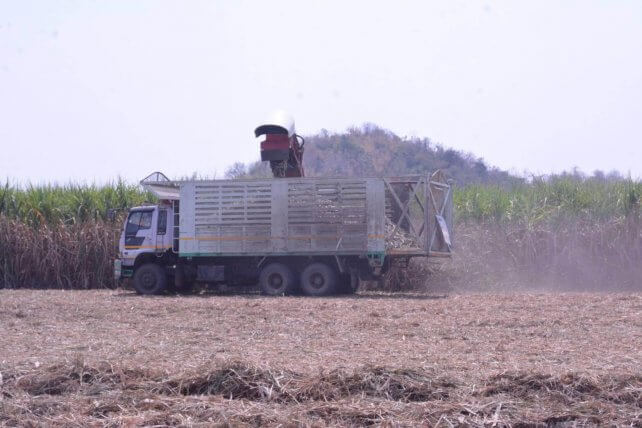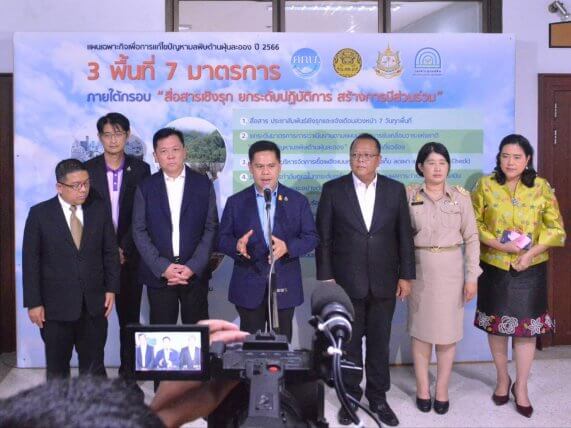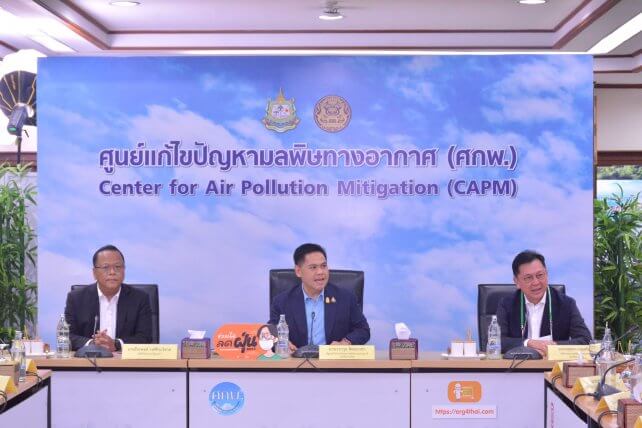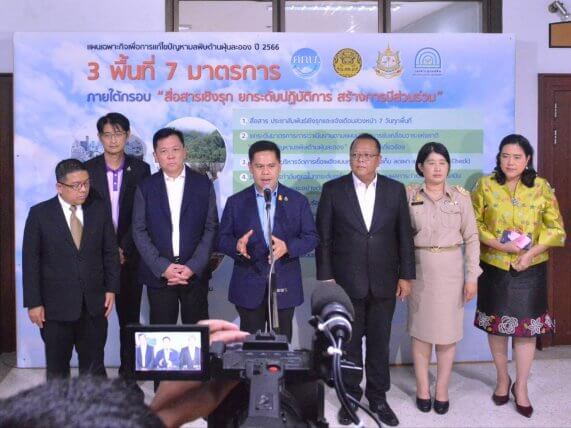
H.E. Varawut Silpa-archa, Minister of Natural Resources and Environment (MNRE), was the chairman of the 2023 policy meeting on the prevention and resolution of forest fires, haze, and particulate matter problems. The participants of the meeting consisted of Mr. Jatuporn Buruspat, Permanent Secretary of MNRE, Mr. Teerapong Wongsiwawilas, Permanent Secretary of the Prime Minister’s Office, Mr. Pinsak Suraswadi, Director General of Pollution Control Department (PCD), representatives from various government agencies and private sectors and representatives from 76 Provincial Office of Natural Resources and Environment. PCD concluded that the particulate matter situation has improved compared to the previous year in Bangkok Metropolitan Region and 17 Northern provinces. In addition, the number of hot spots in Thailand in the past 3 years has decreased by 80%.
H.E. Varawut revealed that the trend of the particulate matter situation in 2023 will be more severe than the previous year due to the meteorological conditions from November to the end of February 2023 with low air buoyancy ceilings, calm weather conditions, and calm winds. It is in line with the Meteorological Department’s forecast, which said it would be colder and less rainfall. It’s also in line with the forecasts of the United States National Centers for Environmental Prediction that the “La Niña” phenomenon will be less or more drought. The source of PM2.5 in Bangkok remains the same every year. However, the weather during this period will be high pressure, calm air, and calm wind, resulting in the amount of particulate matter being unable to be discharged and particulate matter accumulation. The primary sources of particulate matter are traffic and diesel vehicles. The measures in 2023 consist of 1) asking for cooperation from oil traders to distribute low-sulfur fuel oil from December to April 2) asking for cooperation from motor vehicle operators to organize activities to check engines and change lubricants at a special price and 3) more stringent black smoke inspection of government cars than general cars.
H.E. Varawut said the estimation of the number of hot spots in the northern region over the past three years has shown that the number of hot spots has decreased by 80%, resulting in an increase in the amount of fuel accumulated in the forest area. He asked to 1) expedite management to prevent burning,
2) expedite the project “Keep first, before burning”, and 3) convert those fuels into RDF, or add value. All of these will reduce the amount of fuel and the occurrence of forest fires. In terms of agricultural land, there are proactive measures to create awareness among people to know the impact of burning in order to avoid burning. In the case of transboundary haze pollution management which is beyond the control of the Thai government, Thailand will submit documents to the ASEAN Secretariat for cooperation with the governments of various countries. Moreover, he has guided the government sectors, the private sectors, and the media to understand the public about standards for reporting situations so that people do not panic about misinformation.
Mr. Pinsak said that the government has continually focused on solving the problem of forest fires, haze, and particulate matter in accordance with the action plan for driving the national agenda “Solving the problem of particulate matter”. In addition, the operation is rigorously upgraded every year by creating an ad hoc plan for solving particulate matter problems from 2021 to the present. The National Environment Board has already approved an ad hoc plan for solving particulate matter problems in 2023. This year, the plan focuses on raising the rigor of operations under 3 areas, namely urban areas, forest areas, and agricultural areas, with 7 measures under the framework of “Proactive Communication, Upgrading Operations, and Engaging Involvement”, which are as follows:
- Accelerate proactive public relations and provide 7 days advance notice in all areas.
- Enhance the implementation measures according to the action plan for driving the national agenda “Solving the problem of particulate matter” and other related plans.
- Improve the level of comprehensive fuel management (“Keep first, before burning” and “Burn Check”).
- Strictly supervise the operation at all levels, monitor the performance, and continuously assess the situation.
- Reduce hot spots, prevent and control fires in all areas, and develop a Fire Danger Rating System (FDRS).
- Push for international mechanisms to ensure the most effective prevention and resolution of transboundary haze pollution.
- Encourage all sectors to take part in planning and implementing prevention and solution of forest fires, haze, and particulate matter.

